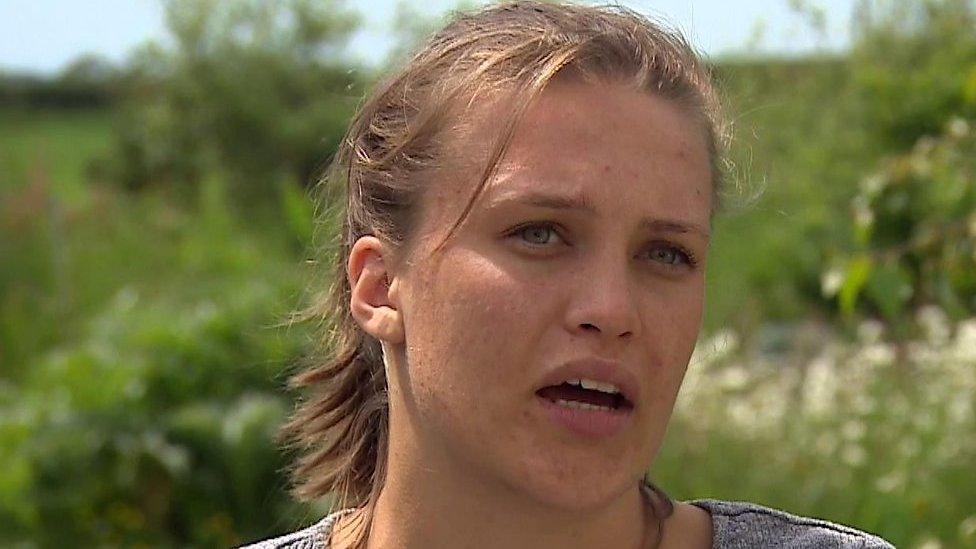Coronavirus: 'Lockdown puts people at risk of self-harm'
- Published
Charities are worried a mental health services reduction is putting people at risk
People are being put at greater risk of self-harm or suicide because of a reduction in mental health services during the coronavirus lockdown, charities have said.
Counselling and assessments have "disappeared or been drastically reduced," according to Hafal.
Welsh health boards said mental health services were "not shut for business".
But they said "difficult decisions" in care have had to be made to reduce risk to staff and patients.
Hafal's chair, Mair Elliott, has been struggling with mental health problems herself.
The 23-year-old said she did not "foresee my stability lasting very much longer if this crisis continues".
Hywel Dda health board said it offered telephone and face-to-face contact and other virtual support.
But Ms Elliott, from Haverfordwest, Pembrokeshire, said she worried about her safety.
Until March she was having weekly meetings with a mental health nurse, a dietitian and a therapist.
She said she now gets an "occasional text" from her nurse and has been told that because her health board does not have video call capability, and for reasons of confidentiality, she can only speak to her therapist and dietitian on the telephone.
"I am not comfortable speaking over the telephone for various reasons and that is the only method in which mental health services are providing support at the moment in my area," she said.
"I'm finding that very, very difficult."
Mind Cymru published an online survey and results from 837 people who had previously experienced a mental health problem and replied suggests the reduction in services is having a wide-ranging impact.
Of these, 134 (17%) said they had sought help from NHS mental health services in the past fortnight, with 27 (20%) of were unable to access them.
Forty respondents (19%) said they had trouble contacting a GP or community mental health team and 42 (20%) said they felt uncomfortable using phone or video call technology to talk to their mental health nurse or therapist.
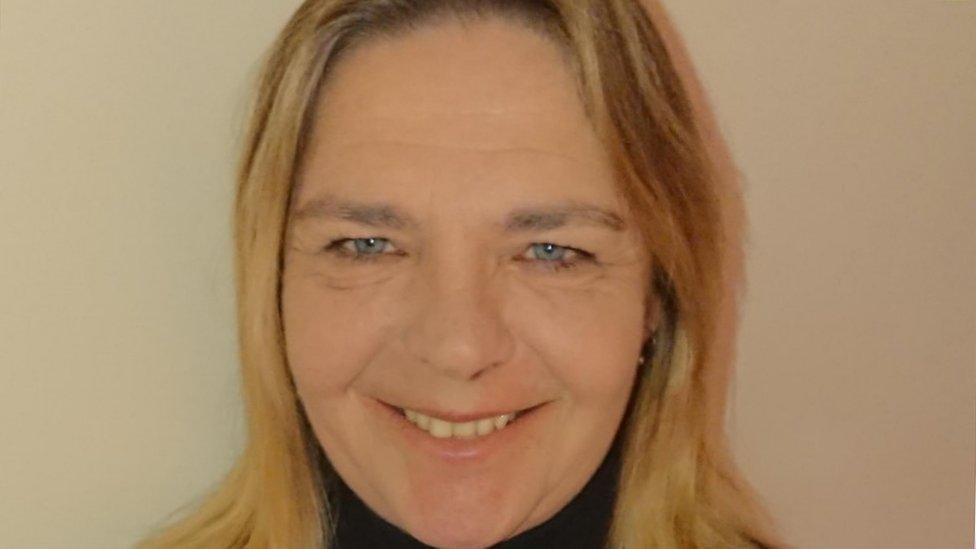
Joanne Ellison-Brooks is unhappy about her treatment since the start of the pandemic
Ms Elliott said Hafal has seen a doubling of demand for help, including from people who said they had emergency appointments cancelled or could not reach their community mental health team.
"We need some leadership from the Welsh Government, firstly to ensure that people remain safe," she said.
"People with serious mental illness may not be getting consistency and it can be really distressing.
"It may not sound as dramatic as saving someone from a heart attack, but this is life-saving care."
'Lost lifeline'
Joanne Ellison-Brooks, 49, from Llangollen, said she felt "terribly let down" after her local primary mental health support team in Wrexham cancelled monthly counselling sessions and closed her case file.
She said it has ended a close relationship with a mental health nurse who had helped her over the last year to recover from an anxiety attack that left her in hospital.
"I've lost this amazing lady, my lifeline," she said.
"I was told when [the pandemic] was over I could go back to my GP and get a new referral but that took nine months last time, so it could be another year to get referred again.
"It's been a real kick in the teeth."
Betsi Cadwaladr University Health Board said it had made "a number of temporary changes" to deliver mental health support during the pandemic.
The board's medical director for mental health services, Dr Alberto Salmoiraghi, said it was to reduce the risk of patients getting the virus and in anticipation of "large numbers" of staff being forced to self-isolate.
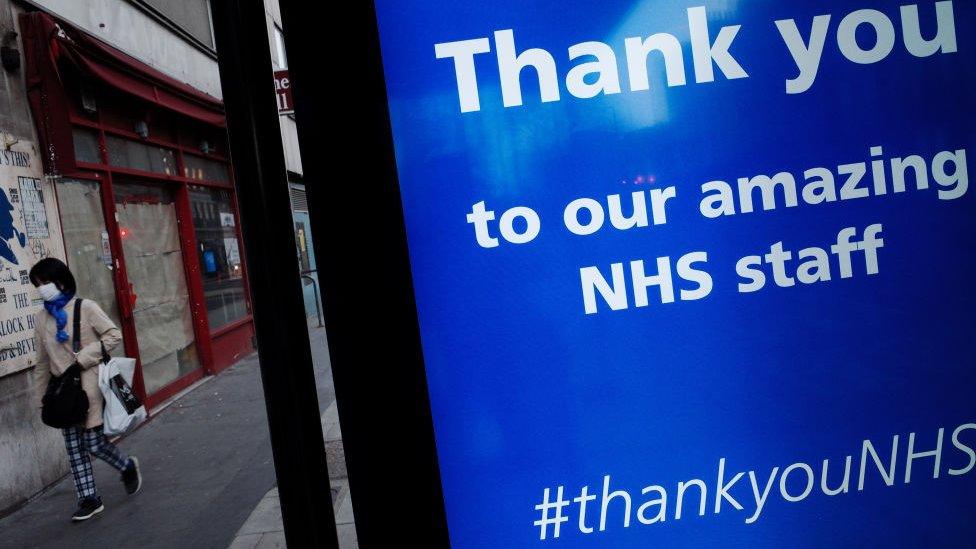
NHS resources have been stretched as health boards try to deal with the coronavirus pandemic
Joanna Jordan, the mental health lead with NHS Wales Health Collaborative - which works with health boards - said the Welsh Government identified mental health provision as an essential service in its pandemic planning.
"Right from the start it's been clear from health boards that mental health services cannot shut for business and they have not been shut for business," she said.
"They were taking some difficult decisions about who they would continue to support and how they would continue to support them, based on risk assessments."
The Welsh Government said it recognises "the potential impact of current restrictions on mental health" and expects health boards "to ensure support is available for mental health issues".
Hafal also wrote to the Health Minister Vaughan Gething over reports that inpatients have been released early to free up mental health beds for dementia care during the pandemic.
Ms Elliott said sending patients home early was "dangerous."
"These are people who are very very unwell and who need to be in hospital for their own safety or for the safety of others," she said.

Vaughan Gething said he expects services to be maintained
Mr Gething said in a written response to Hafal that he expects "services be maintained even with reduced staffing".
Prof Ann John, Swansea University's school of medicine, said mental health services have had to "transform almost overnight" and cannot deliver the same level of care.
"There are a lot of risk factors for people thinking about taking their own lives and some of those risks factors will be potentially worsened during the lockdown," Prof John said.
Prof Keith Lloyd, chair of the Royal College of Psychiatrists in Wales, said practitioners here have been "leading the way" in use of technology to delivering remote counselling.
But he said there are serious concerns about the future if the pandemic is followed by a major recession.
- Published16 April 2020
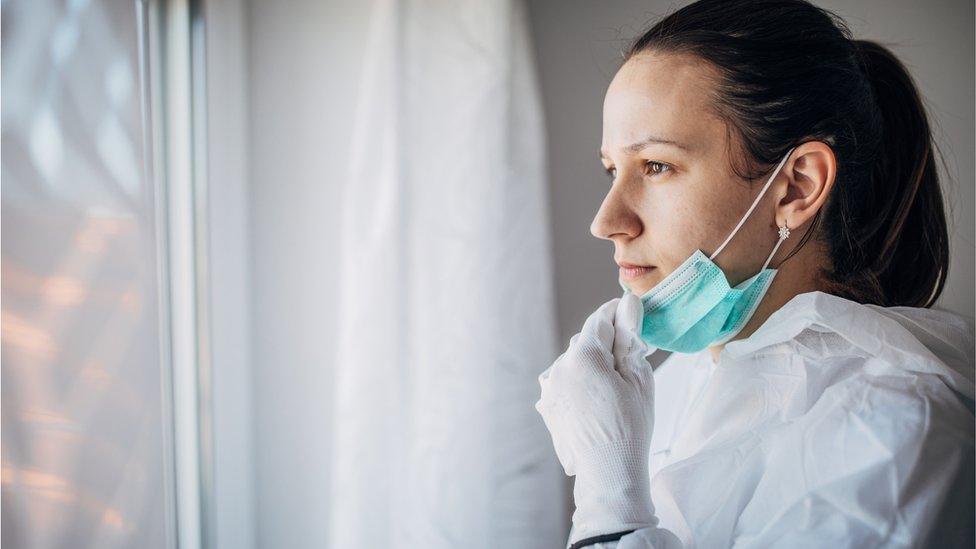
- Published6 May 2020
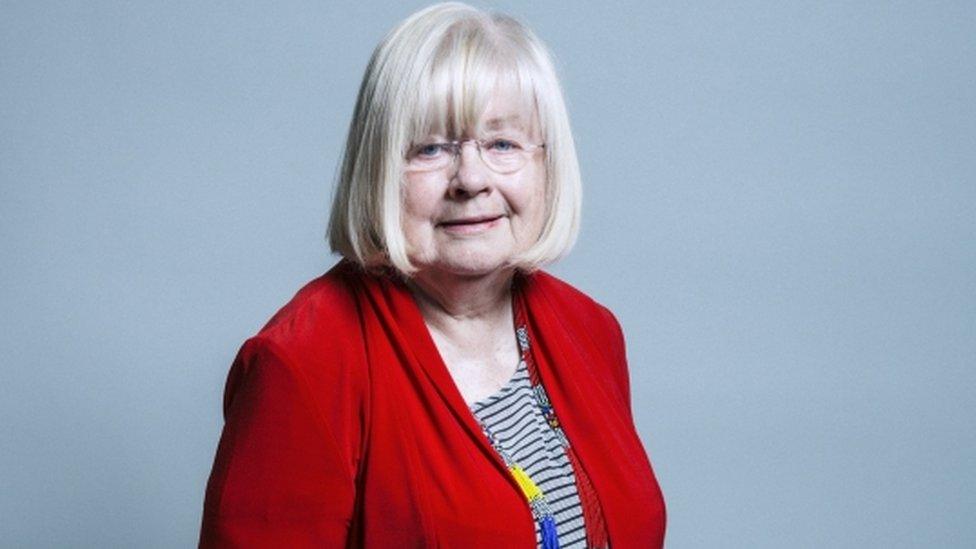
- Published12 June 2019
